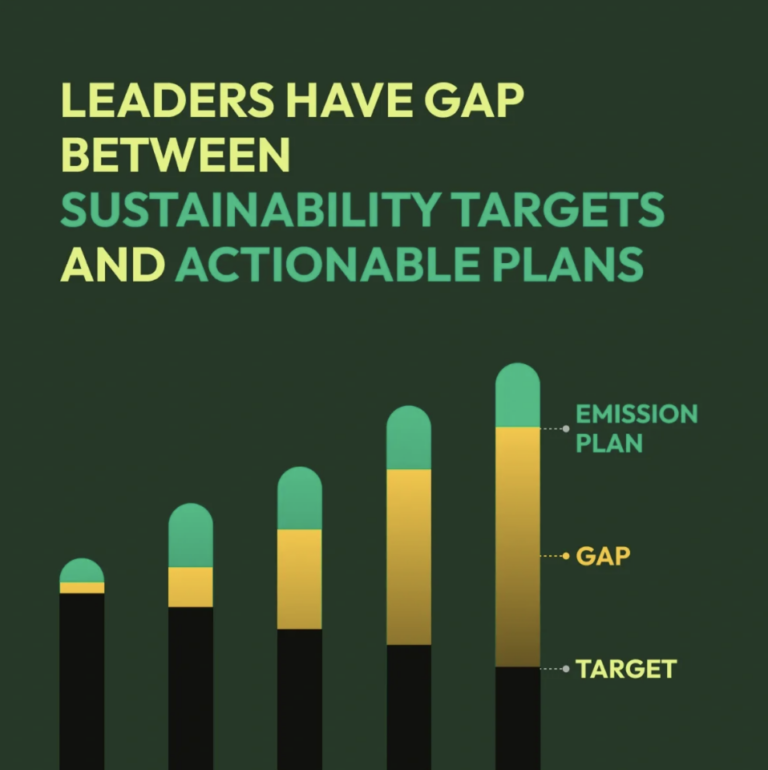
- Kim Kisner
- Business
- 07/30/2024
OrbAid Founder on Closing the Gap Between Sustainable Goals and Progress, Profits

Established in 2022 in Detroit by William Crane, OrbAid is dedicated to – in his words – helping companies build greener bottom lines.
The company sells AI-based project management software that provides data and recommends actions to help companies prioritize projects that increase profits and environmental impact.
SBND interviewed Crane about the current landscape for businesses navigating sustainability projects.

Q: What are some of the biggest challenges you see businesses facing when it comes to sustainability?
A: There are a number of challenges and some macro trends that stand out.
When we look at the largest publicly traded businesses globally, they’ve made public commitments when it comes to their sustainability goals, and have included these in their SEC Filings.
Many, if not most, of these companies have a significant gap between their goals and their current progress. The effort required to close this gap is substantial and poses a considerable challenge in itself.
Second is the continuous improvement aspect and the time and resources this involves. For example, a company may have a goal to decrease emissions by 10% year over year for the next ten years. Planning for its longevity is a challenge.
Automotive suppliers are under significant pressure. One of our customers, Prism Plastics, is particularly challenged by increasingly stringent customer sustainability requirements, and suppliers don’t have a long runway to become compliant. Further, with new government regulations taking effect in the EU and US, companies can face extreme fines and there are rigorous legal ramifications. Both customers and governments are shifting their sustainability expectations from pollution reporting to business greening.
Often, companies have sustainability teams composed of employees who are already filling other roles, making it a part-time effort at best. These teams might generate ten ideas for green projects when, realistically, they need 10,000.
Also, the sequencing and prioritization of projects is a challenge. Determining the most efficient and effective projects and initiatives to put into place – and in what order – is necessary to be able to sustain continuous improvement.
Q: Sequencing of projects – what does this mean exactly and how does that play into a company’s sustainability planning?
A: Companies have the best intentions of course, but taking on projects in a strategic order will help to remain profitable.
For example, a global manufacturing company might decide to put solar panels on all of their factories across the country or the world. That is not a bad thing, but maybe that project is more expensive and has a longer payback than switching select supplier disposable cardboard boxes to returnable metal racks.
Sustainability is a long game, and as I said, most large companies have continuous improvement demands year over year, so it’s about strategically sequencing the projects to remain profitable while meeting goals.
Technology can help here. Leaning into AI to sort out the sequencing can be a game changer.
Q: Where are companies most often missing opportunities to be more sustainable and increase profits?
A: The practical and actionable stuff. There is so much pressure surrounding sustainability. It’s been politicized. There is consumer angst around it. There are stringent government regulations as I mentioned. And people naturally go to extremes.
It’s back to the idea of large global manufacturers putting solar panels on all of their factories around the world. This is an enormous and expensive project. Not to say that’s not something they should do at some point, but perhaps first, companies can look at creating less trash, using less water, and converting to different materials in their manufacturing.
By doing these things they can save time and money and help the environment. It’s a matter of prioritizing projects and not just throwing a Hail Mary and hoping things work out. There are a number of very practical projects that can be taken on and absorbed that in the end will help businesses be more profitable – and keep them profitable along the way.
We’ve been able to help many companies in this way, including GM, Prism Plastics, Berkshire Hathaway, and more.
Q: Are these hurdles changing over time? Evolving?
A: Yes, when it comes to sustainability things are always evolving. We continue to face changes in regulation. I think 2025 will be an inflection point. If companies don’t comply with regulations the fines will be astronomical.
Also, the science and the jargon can be confusing. But consumers are more educated than ever before and also more demanding when it comes to their sustainability expectations of companies.
Q: What are some examples of sustainability projects for businesses that you have seen increase profitability?
A: Product packaging is a big one. Take appliance companies like Whirlpool. Historically, an appliance gets delivered to a home and you are left with a lot of cardboard and styrofoam. Switching to renewable materials can translate to savings. We are seeing some really creative innovations in packaging materials like fungus-based inserts that are organic and naturally break down.
Q: How do you think AI can impact local businesses in terms of sustainability?
A: AI is an efficient tool. It can be used to quickly – yet deeply tailor actionable profitable sustainability projects that deliver results.
It can be used to calculate the environmental impact and business profit to get better, faster results.
Be sure to subscribe to our newsletter for regular updates on sustainable business practices in and around Detroit.
Kim Kisner
- All
- Business
- Community
- Education
- Events

ZF Group, a global technology company with its North American headquarters in Northville, specializes in systems for passenger cars, commercial vehicles, and industrial technology. With a focus on next-generation mobility, the company develops solutions that address electrification, automation, and digitalization while aiming to improve safety, efficiency, and sustainability in transportation. SBN Detroit interviewed Anuj Shah, Sustainability Lead, for the Americas, to explore the most pressing environmental challenges in...

The Chip Bag Project, based in Detroit, is a sustainability initiative that upcycles hard-to-recycle snack packaging — particularly chip bags — into insulated sleeping bags for individuals experiencing homelessness. Founded by Eradajere Oleita, the project addresses both environmental waste and housing insecurity by transforming materials like Mylar into practical, thermally efficient solutions. In June, Oleita was among Trelllis’s 30 Under 30, its annual recognition of the brightest young...

PowerPanel, headquartered in Oxford, focuses on sustainable energy technology with a particular emphasis on hot water systems and thermal energy capture. The company designs and manufactures modular solar hybrid systems that integrate both photovoltaic and thermal components into a single unit. Its goal is to offer energy solutions that are more efficient, durable, and economically viable for a range of commercial and industrial applications. SBN Detroit interviewed Garth...







